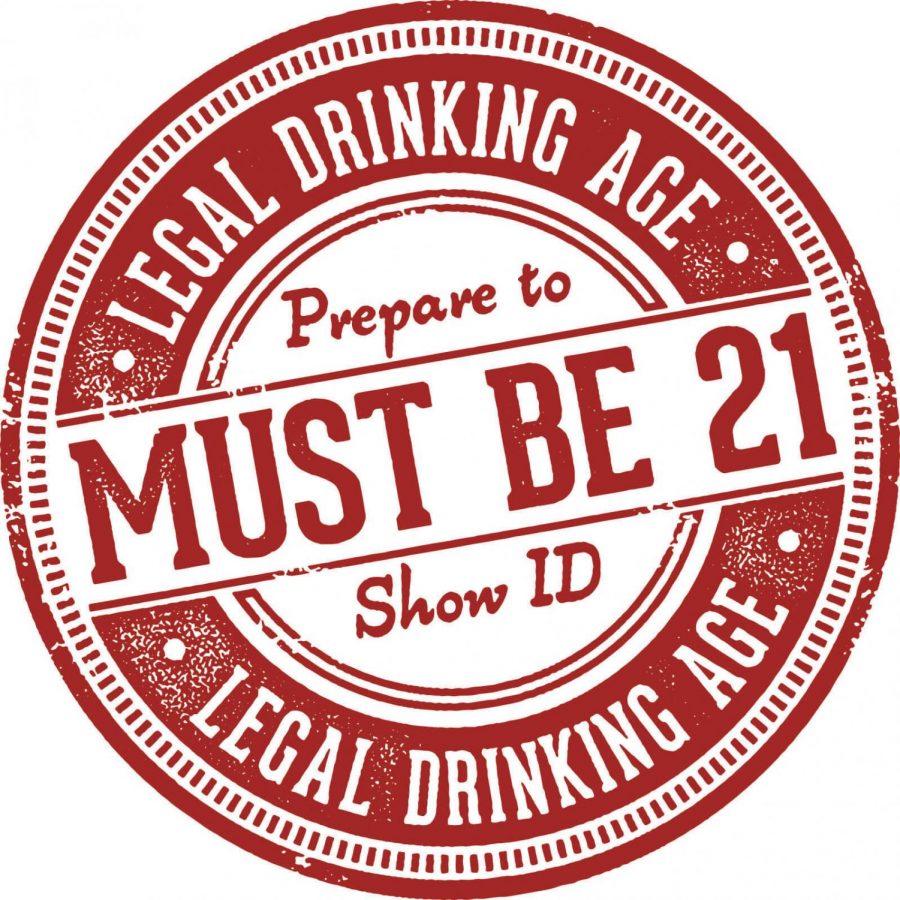Drinking Age
The legal drinking age has always been a controversial topic. There have been arguments about when the human brain is mature enough to handle alcohol since the first drink was created. In order to regulate consumption Congress passed the National Minimum Drinking Age Act of 1984. This act did not make it illegal for states to have a lower drinking age then 21 but it did state that any state with a drinking age below 21 would lose federal funds for transportation. By 1988, every state had a drinking age of 21. It is still that way today.
I now pose this question, at the age of 18 we are mature enough to go to battle for our country holding a rifle but we are not mature enough to hold a drink? At the age of 18 we are mature enough to vote on the next leader of our country but not toast to a new year? In recent years there have been many movements popping up around the country to lower the drinking age to 18. All those opposed to this idea would look back at the 1970’s. The data back then showed an association between a lower drinking age and more alcohol related car accidents. But what the United States did not have back then was regulations on drinking. If you were over the age of 18 you could go out whenever, drink whatever you wanted, and however much of it you wanted.
The United States should look at its European allies for advice on how to handle consumption laws.
Drinking is a cultural phenomenon in The United States. Since the beginning of time the saying, “people want what they can’t have,” has been around. Alcohol is a prime example of this. The United States tried to outlaw it during the prohibition only making it more dangerous. Many years have passed since the prohibition, but that saying still applies. Those in favor of lowering the minimum legal drinking age (MLDA) from 21 argue that it has not stopped teen drinking. By making alcohol taking something they want but can not have has instead pushed underage binge drinking into private and less controlled environments. This is leading to more health and life-endangering behaviors in teens.
Most people against lowering the drinking age use the relationship between car accidents and alcohol consumption as their biggest argument. Which yes was true back in the 1970’s, but what do the statistics show now? In the United States, 31% of road traffic deaths involve alcohol. This percentage is higher than many countries with a drinking age lower than 21 such as France (29%), Great Britain (16%), Germany (9%), China (4%), and Israel (3%). This means that even though the united states raised it MLDA, countries who did not still have a lower rate of road traffic deaths involving alcohol.
Let’s take a closer look at Germany’s consumption laws. Germany is famous for the amount of alcohol consumption happening there, yet it has a rate of 16%. The regulations in Germany seem to be designed not to keep people from alcohol, but rather seem to foster an appropriate approach to alcohol consumption. In Germany, there is a 3-tiered drinking age: at 13 minors are allowed to consume beer or wine with their parents or legal guardian, at 16 minors are allowed to consume beer or wine without their parents or legal guardian, and at 18 adults are allowed to consume distilled alcohol. There is another factor associated with the lower rate. Germany has different driving laws, aswell. In Germany, there is a zero tolerance for any new driver having a license less than 2 years, regardless of age. And, the zero tolerance applies for anyone under 21 and professional drivers.Also in Germany, the limit is 0.03 if involved in a traffic violation or accident and 0.05 if just stopped normally, compared to the United States limit of .08, that is much stricter.
In Germany, with the 3-tiered drinking age, this seems to allow people to have the appropriate approach to consuming alcohol because it is not such a taboo and off-limit thing to do. Also, with the high costs associated with obtaining a license and driving a car, coupled with the abundance of public transportation, alcohol-related accidents appear to be lower in Germany than the US. So, if the United States looks to countries where consumption laws seem to be working better, there should not be an issue in lower the drinking age.
Isabella is one of the Co-Chief Editors. She has been a member of the Bison for three years. She enjoys writing pieces that will inform people. She is...


